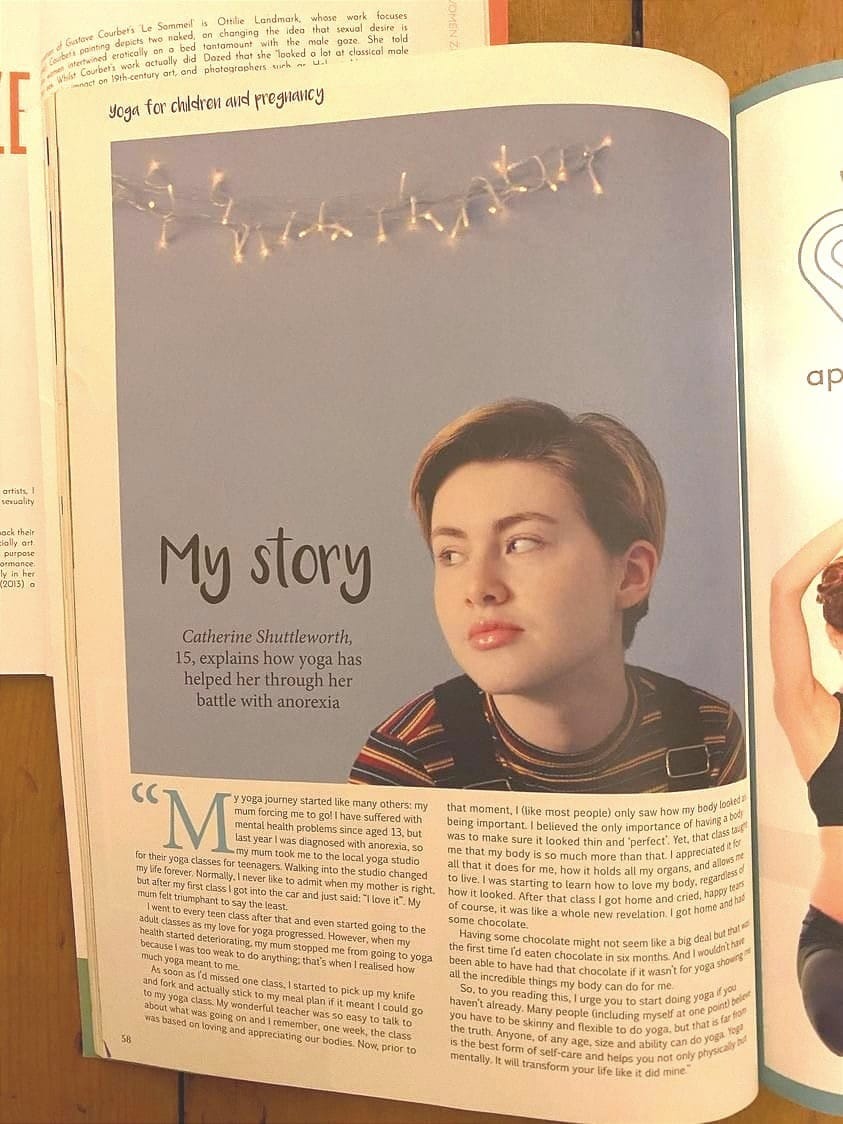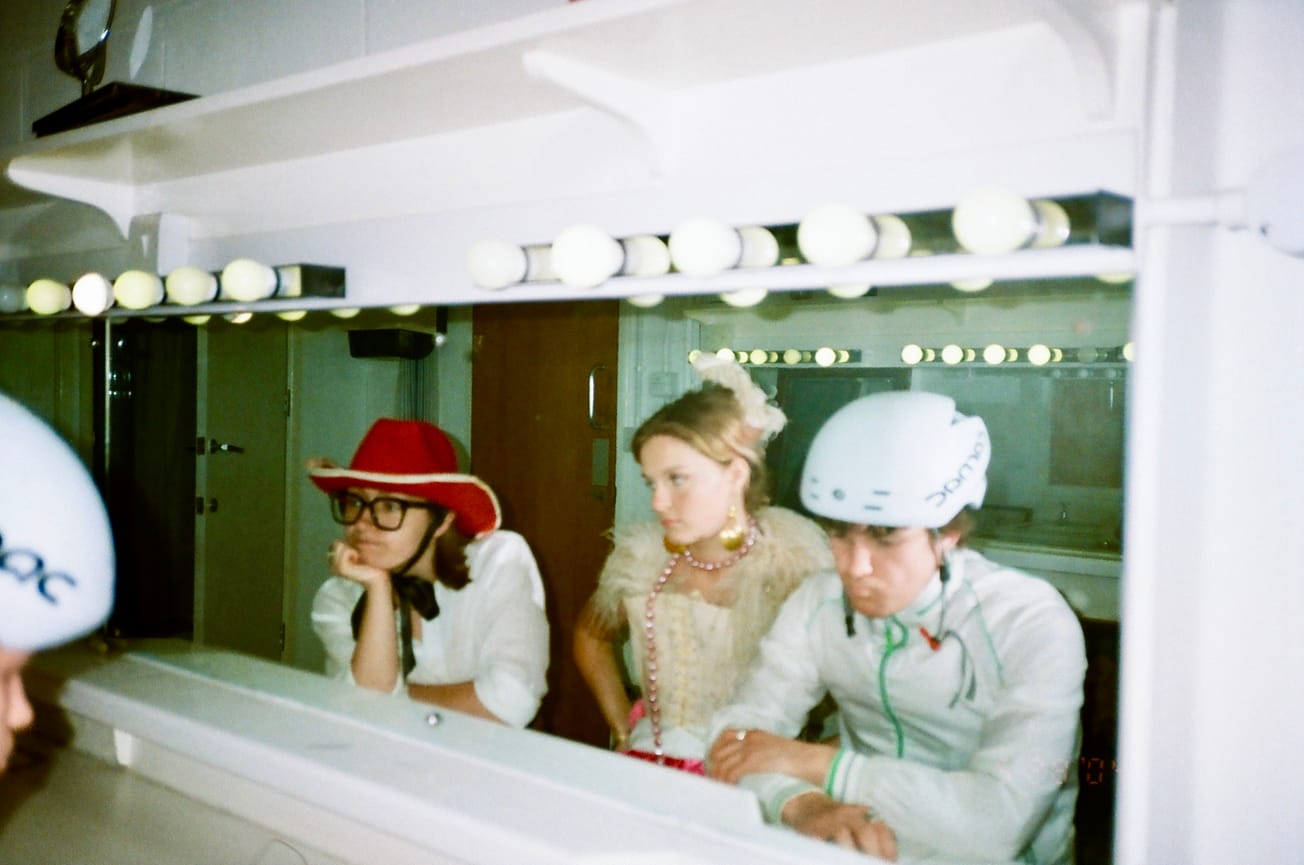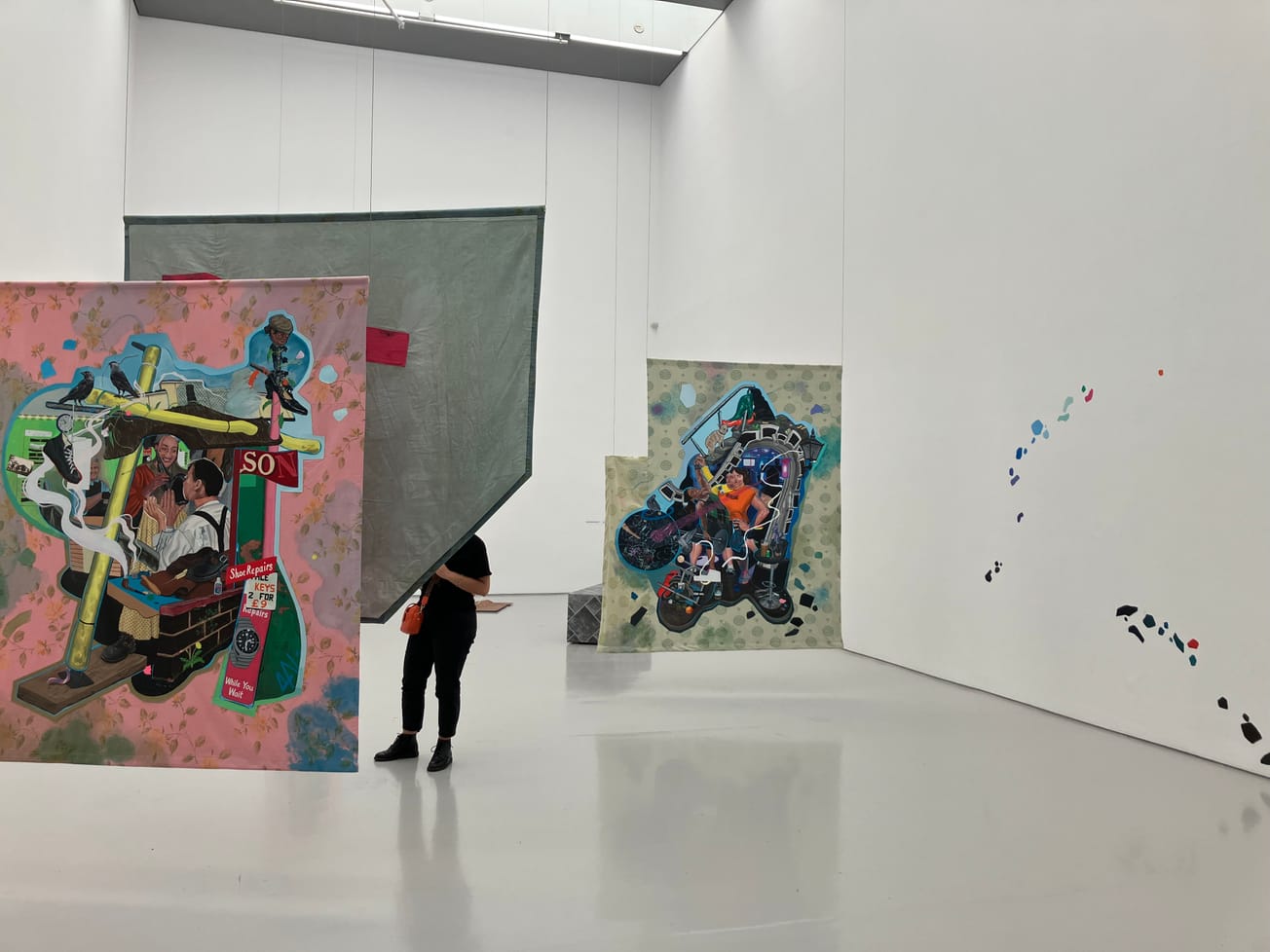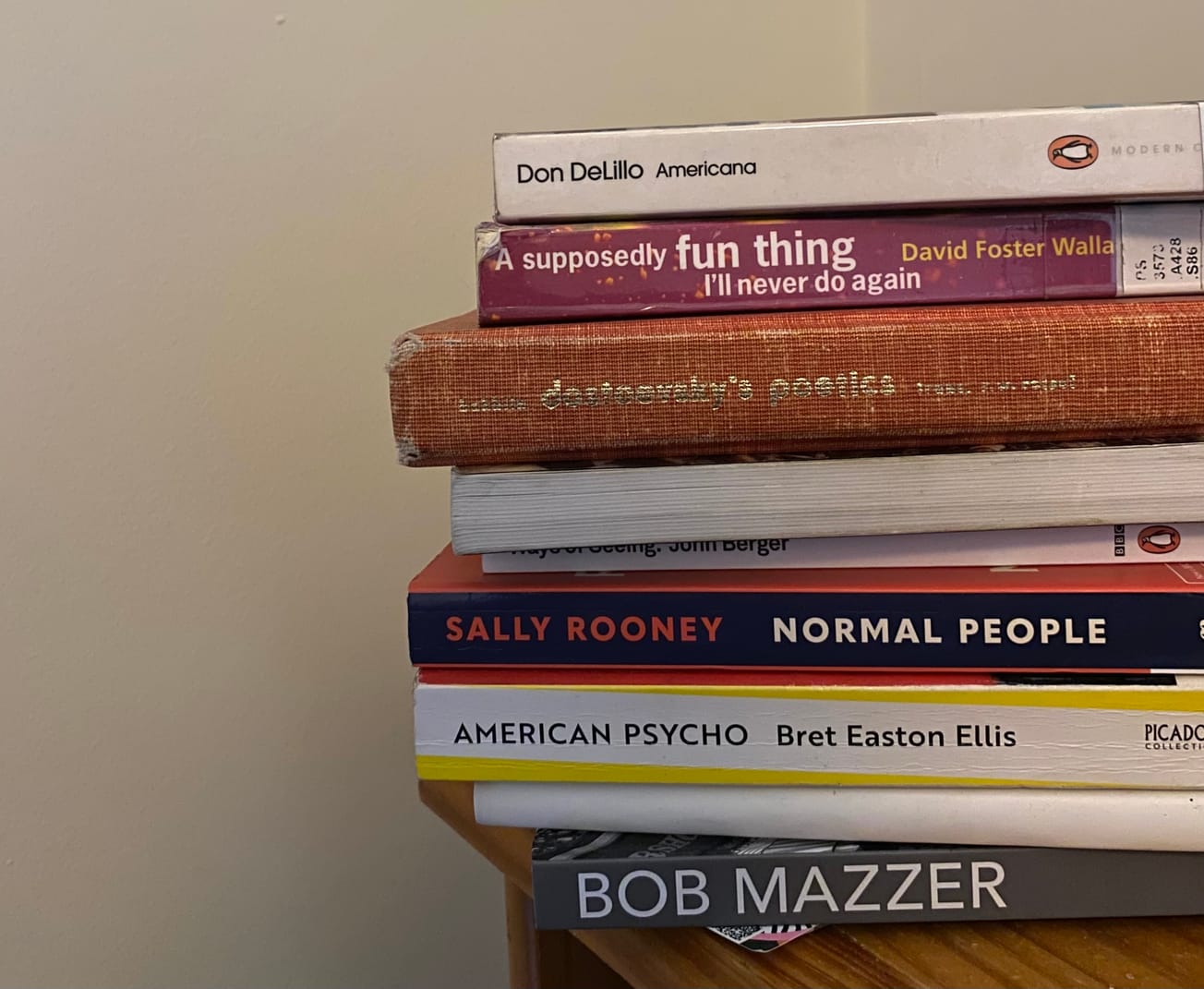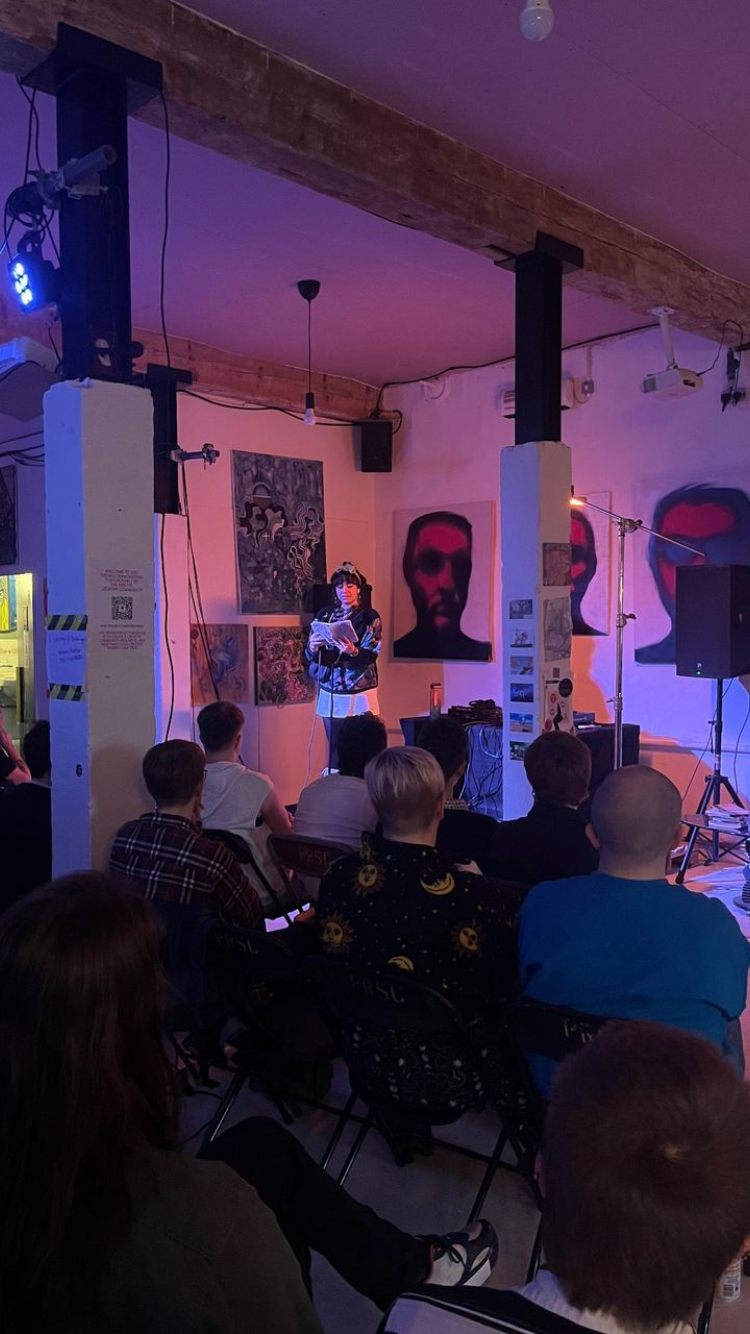By Isabel Williams, Arts Co-Deputy Editor
When Politics and Sociology student Catherine Shuttleworth pitched her first article at age 15, she wasn’t expecting it to lead her to a career in journalism.
‘I’d always loved writing stories and stuff,’ she tells me during our Zoom call, ‘I used to want to be Katy Perry. When I was a kid I used to write shitty songs and be like, ‘‘I’m gonna be a pop star.’’ Her first pitch was made to an online, independent publication called Gurls Talk, set up by British-Ghanian supermodel Adwoa Aboah, whose advert Catherine’s mum had spotted online. ‘So I sent off an email being like, ‘‘I want to write about bisexuality,’’ because that’s how I identified at the time,’ Catherine explains. ‘I want[ed] to write about how I feel like it’s met with quite a lot of hesitancy and I think a lot of people don’t see it as an identity. Then it got accepted, and I was 15 years old and I was like, ‘‘Fuck,’’ like, ‘‘oh my God, this is something I can do.’’
Her first paid gig was an article for a publication called Blogosphere, which covered trends and news in the world of YouTube influencers. The publication paid her £150 for the article. ‘I remember just jumping up and down, like that was the most money in the world for me.’ Looking back on the moment now, she confesses, ‘I was really glad that I started when I did, because I’d never accept something for that money now,’ referring to the pay as ‘disgusting’ considering the amount of effort that goes into crafting an article, whilst admitting it to be a very normal sum for starter rates. ‘But obviously I was a teenager; I was living at home, so I could afford to take not-very-well-paying jobs that were going to give me bylines. Because a lot of the time you’ll find that, with pitches and editors, they’ll say, ‘‘We just want to see what you can do in your name.’’ It’s not about where you’ve been published; it’s about what you’ve been writing, but you have to be able to show that.’

It is this genuine enthusiasm for writing that has remained integral to Catherine’s work as a journalist. A quick look at her Linktree on Instagram reveals a wide variety of articles covering fashion trends, feminism, political conflicts, mental health, LGBT+ rights and a range of artistic topics, all subjects very close to the writer’s heart. She tells me that she thinks personal subjects such as mental health and cultural issues’ were her initial niche, but that she has moved away from these topics more recently. Many of her early articles were opinion pieces relating to her experience as a young person with an eating disorder, and whilst this helped her to develop her writing and establish herself, she realised that she was ‘selling parts of a very vulnerable story – that wasn’t even entirely over at that point – because I wanted my name out there and that’s what publications were going to pay me for.’ She illustrates the potentially problematic nature of this with the story of another writer’s article, which had gone viral on Twitter a few years ago.
‘I think she was writing about why she doesn’t like going on holiday, or something. It was an opinion piece that kind of came off a bit bratty, and she got jumped on Twitter, like, oh my God, I remember it was all anyone was talking about for a couple of days. And I remember one editor said, ‘‘Shame on the editor that commissioned this. It’s a young girl, one of her first big bylines, who doesn’t understand that she’s writing something quite personal and that she’s opened herself up to all this and who clearly had absolutely no guidance from the editor, who just wanted clicks.’’ I was like, oh my God, that’s such an interesting way to look at it.’
When it came to applying for her current job at The Independent, Catherine hadn’t had any professional journalism experience apart from her own freelance work. Aside from this, she thinks that it was emphasising her adjacent skills which secured her the job. ‘I talked about how I understood SEO; I understand how to use WordPress, which a lot of publications use. It’s sort of all about buzzwords, so I would say that I could do long-form, short-form; I could do quick turnaround - which was true,’ she adds, detailing how in 2020 she had written an article about COVID in schools. Just as it was due to publish, the Education Secretary had announced a policy that made the content of her article redundant. Although she was offered a kill fee for her work, Catherine instead chose to re-write the article in under an hour. It is niche adjacent skills such as these which have helped her to get professional work in the past, even though certain qualities might not initially seem like assets. ‘The funniest thing I ever put [on an application] was when I was getting The Independent job, and I was like, ‘‘I have my finger on the pulse of trends,’’ she laughs. ‘I was like, eurgh, that makes me feel sick saying that, but […] these publications are killing themselves over trying to figure out what Gen Z wants to read.’

When it comes to getting your start in journalism, Catherine has a wealth of insight. ‘There’s a website organisation called Journo Resources,’ she says, ‘they send out a weekly newsletter of stuff […] and they have a list on their website of publications and how much they typically pay and the contact emails.’ She mentions that she spent many weekends as a teen figuring out editors’ emails through trial and error. ‘They normally have a similar format, so if you can find one person’s email for a publication, you can just alter it to fit it. So if it was like, Steve.Shuttleworth@theindependent, you’d just find whatever the other person’s name is and you’d just change the initials.’ She also mentions a website called Clippings.me, which allows a person to post up to 10 articles online for free as a kind of mini portfolio. ‘Sometimes I edit it as well, depending on what I’m pitching. So, if I’m pitching an art piece, I'll add all my really artsy stuff in there and take out the stuff that isn’t so relevant. Because the reality is: an editor, if you’ve not worked with them before, doesn’t have time to read all your articles, so a refined one actually gives them the opportunity to see your best work. Also, social media,’ she adds. ‘I always link my Twitter profile when I’m emailing editors because that’s where I’m sharing my work and that’s quite accessible.’ It was through this app that Catherine found a huge number of adverts for pitches. ‘I’d say if anyone reading this can take one thing away: be on Twitter,’ she says, ‘It’s a hellscape, but it’s how I got this job.’
As a journalist myself, I can relate to Catherine wholeheartedly when she bemoans the lack of opportunities available to those who don’t have connections within the industry. ‘Sometimes they’ll still want flexible working and for you to come in, but they’re not paying wages that can make you live in London. Like, unless you’re putting me up in a flat, absolutely not.’ I nod my head in sympathy. ‘Vogue does unpaid internships,’ she says, ‘like, are you fucking kidding me? I know your print sales are declining, but you still have money. It’s insane and it’s horrible.’ According to the National Council for the Training of Journalists’ 2023 Diversity Report, 88% of journalists come from white ethnic groups, whilst 72% had a parent in one of the three highest occupational groups. In light of these statistics, Catherine stresses just how vital she considers it to support independent publications where possible, ‘because they’re the ones that are going to give those who aren’t white, privately educated, upper-middle class people a chance.’
When I ask her what her thoughts are on networking, her response is quick and adamant. ‘I hate it; I hate networking,’ she states. ‘This whole idea of just creating relationships for gain is such a capitalist hellscape idea, which is why I try and do it from a place of actual support.’ She emphasises just how important she finds it to build up genuine relationships with other writers - ‘If I actually really like their piece, I’d always let them know’ - and the picture she paints of the online writers' community is one of intense support. ‘Writers are gonna have your back more than any big box in a publication who doesn’t actually understand the creative side of the role […] There’s been so many layoffs in the past 18 months in media, every time I read about it I’m like, should I give it all up for some boring marketing job I don’t want to do? But you see writers come out, and editors, in armies being like, ‘‘If you’re looking for work, here you go,’’ she says. ‘Or like, ‘‘My editor is always looking for this, if there’s anything I can do to help you out.’’ So, I think we need to redefine how we do networking, or at least, I’d like it to be redefined […] Like, actually engage with a person’s work so you can talk to them about it and uplift each other and help each other out.’ It’s the same sentiment that prompted this ‘Creative careers’ series, and one we couldn’t agree with more.
Journalism resources mentioned:
https://www.journoresources.org.uk/
Independent publications Catherine recommends supporting:
https://www.polyesterzine.com/
Featured Image: Catherine Shuttleworth
Are you a Bristol student with your foot in the door of a creative industry? Send us a message at arts.epigram@gmail.com. We'd love to hear from you!

